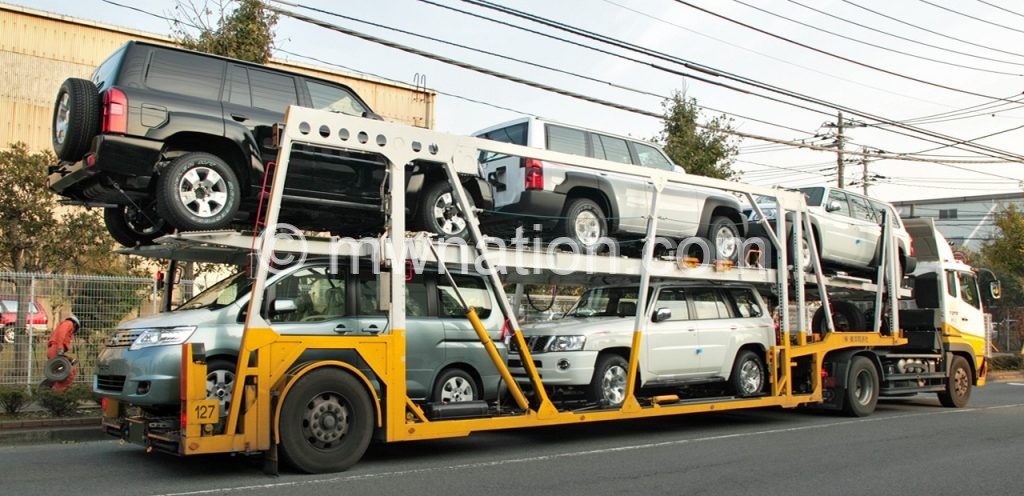Kwacha volatility hits motor dealers
For corporate Malawi, the tumbling kwacha has been both a blessing and a curse: while it has been a windfall for exporters, it has also saddled domestic manufacturers and retailers with higher costs and weaker consumer demand.
The currency free fall has left a raft of companies — including franchise motor dealers—scrambling to contain the damage.

Government says it will step in to normalise the situation, but according to Motor Traders Association (MTA), the damage has already been done.
The association says the negative effects of the depreciation of the kwacha are that sales of vehicles and spare parts have plummeted in the past six months.
MTA is a grouping of companies which include Mike Appel and Gatto, HTD Limited, Automotive Products Limited (APL), Tata Zambia, City Motors, Toyota Malawi and CFAO.
According to chairperson of the grouping, Jolly Nkhonjera, who is also deputy managing director of CFAO Malawi, the market is now distorted and planning is proving to be difficult for motor franchise dealers.
He said the depreciation is affecting customers as they are failing to acquire genuine spare parts and brand new vehicles.
“The depreciation of the kwacha and the non-availability of foreign exchange on the market on time is making our operations difficult because we are failing to meet our obligations with suppliers.
“In some instances, if a customer is quoted for example K25 million, as the price of a vehicle, by the time they are coming they find the price has gone up to K26 million or K27 million.”
Nkhonjera said this has led many customers to resort to buying reconditioned vehicles and using pirated spare parts, which is making vehicle maintenance expensive.
Comparing vehicle sales at the same time last year, Nkhonjera said his firm had sold 77 units last year, while this year they have sold 131 units, but most of them have been purchased using grants.
“Most vehicles are purchased by [non-governmental organisations]. Individuals are finding it tough to buy a brand new vehicle,” he said.
According to Reserve Bank of Malawi (RBM), the kwacha relatively remained stable for the most part of the second quarter of 2015, but it depreciated suddenly and sharply to K512 to the dollar at end July 2015, representing a depreciation of 16.1 percent in a month.
In August, November and December 2015, the exchange rate recorded monthly depreciations of 8.7 percent, 8.1 percent and 9.8 percent, respectively.
There was a short-lived stability in September and October 2015, but the kwacha resumed its depreciation and now trades at about K740 to the dollar, or a 60 percent depreciation. Thus, at the current exchange rate, the kwacha has lost value by 338 percent from K169 to the dollar or 196 percent since the devaluation in May 2012.
In a separate interview, Lilongwe branch manager for Automotive Products Limited (APL), Limbikani Gumbo, said they are registering a lot of lost sales because of the kwacha instability.
Treasury spokesperson Nations Msowoya assured the motor traders that government is doing all it can to stop the depreciation of the local unit so that things can normalise.
“It is not like we are doing nothing. We are doing our best to sort out this problem and we are assuring all Malawians, including the MTA that things will improve,” said Msowoya.





